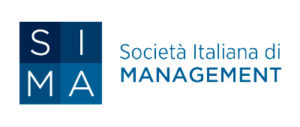Research
NEW: Sixth Digital Transformation Conference “The Emerging Role of Generative Artificial Intelligence in Business”, University of Naples Federico II, 8-9 February 2024
Digital transformation workshop_2024_Naples 8-9 Feb 2024




SIXTH DIGITAL TRANSFORMATION CONFERENCE
CALL FOR PAPERS
THE EMERGING ROLE OF GENERATIVE ARTIFICIAL INTELLIGENCE IN BUSINESS
University of Naples Federico II
Complesso Ss. Marcellino e Festo
Largo S. Marcellino – 80138 Naples
8th and 9th February 2024
Submission deadline: 15th December 2023
Email your contribution to: digitaltran@lumsa.it
Organizing Committee
Cristina Mele, University of Naples Federico II
Tiziana Russo Spena, University of Naples Federico II
Marco Tregua, University of Naples Federico II
Giovanni Battista Dagnino, University of Rome LUMSA
Scientific Committee
Tindara Abbate, University of Messina
Paolo Aversa, King’s College Business School, London
Francesco Bifulco, University of Naples Federico II
Danilo Brozović, University of Skövde
Francesca Cabiddu, University of Cagliari
Sandro Castaldo, Bocconi University
Maria Colurcio, University Magna Græcia of Catanzaro
Daniela Corsaro, IULM Milan
Alessandra De Chiara, University Orientale of Naples
Stefano Denicolai, University of Pavia
Alberto Di Minin, Sant’Anna School of Advanced Studies Pisa
Claudio Giachetti, University of Bologna
Angelo Di Gregorio, University of Milano Bicocca
Laura Michelini, University of Rome LUMSA
Olimpia Meglio, University of Naples Federico II
Arabella Mocciaro Li Destri, University of Palermo
Michele Pizzo, University of Campania Vanvitelli
Alberto Pastore, Sapienza University of Rome
Francesco Polese, University of Salerno
Riccardo Resciniti, University of Sannio at Benevento
Paavo Ritala, LUT University
Roberta Sebastiani, Catholic University of Milan
Antonella Zucchella, University of Pavia
Premise
We kindly invite scholars from various research domains (e.g., strategy, entrepreneurship, innovation and technology management, organizational behavior, managerial engineering, supply chain management, distribution, and marketing) to submit their research proposals. The event is designed to foster the development of a multidisciplinary experience.
Conference Theme
Artificial intelligence (AI) has already become much more than a buzzword since it has started permeating profoundly all business activities as well as management scholarly debate. Notwithstanding that, whether Generative Artificial Intelligence (GAI) has reached the same status or will do so in the future is yet to be determined. Potential of GAI tools have recently been stressed by some scholars (Kunz & Wirtz, 2023; Peres et al., 2023) and, most of them, spotted GAI effects in several business domains, calling for further research (e.g., Dwivedi et al., 2023; Fui-Hoon Nah et al., 2023) especially as soon as empirical evidence will be available. Google pinpointed such potentialities by recalling decades of research behind the current status of GAI and highlighted several future expected outcomes, including new ways of interacting, new experiences, and a long wave of investments. Thus, besides content generation that is the obvious operationalization of GAI implementation, most remain to be studied, said and the implications are far from being evident.
In detail, scholars who have started dealing with GAI identified the management areas that might be interested by relevant changes thereby drawing new research directions. In such vein, Kumar et al. (2019) identified new approaches to create offerings, communicate them, and deliver offerings in a perspective framed as personalized engagement marketing; such a view on marketing was both fed and widened by Kunz & Wirtz (2023) highlighting the responsibility issues related on using AI, while Peres et al. (2023) observed multiple effects in conducting research, teaching, and putting into practice firms’ strategic, marketing and operations activities. Effects are expected as concerns specific industries (e.g., hospitality as in Dwivedi et al., 2023) or business issues (e.g., human resource management (Budhwar et al., 2023). An all-embracing view on the expected outcomes is advanced by Huang et al. (2019), who pointed at the implications on management as a whole; i.e., as regards corporate stakeholders and corporate activism. Such effects are yet to be unveiled. As such, this workshop call for papers addresses the understanding of what is next in the implementation of GAI in business domains; key attention will be devoted to the following topics, without limiting the authors’ interest in other relevant areas:
– Human-AI competition, collaboration and coopetition: challenges and threats for managers consultants and entrepreneurs;
– Firm strategic decision-making processes and the expected contribution of GAI;
– Firm-consumer relationships: AI-generated answers vs the Feeling economy;
– Content generation through GAI;
– GAI as a facilitators for personalized engagement marketing;
– The role of GAI in developing platform ecosystems;
– GAI in entrepreneurial developing and in creating and spotting new opportunities or reinvigorating old ones;
– GAI and firm and ecosystems internationalization;
– Workforce: adaptation, upgrade, U-turn, what to expect?
– Responsibility: blaming the companies or the software?
– GAI’s role and conducting research in management and marketing: new emerging methods, new mechanisms and new theories?
– GAI and management and marketing teaching: bright and dark sides.
References
Budhwar, P., Chowdhury, S., Wood, G., Aguinis, H., Bamber, G. J., Beltran, J. R., … & Varma, A. (2023). Human resource management in the age of generative artificial intelligence: Perspectives and research directions on ChatGPT. Human Resource Management Journal, 33(3), 606-659.
Dwivedi, Y. K., Pandey, N., Currie, W., & Micu, A. (2023). Leveraging ChatGPT and other generative artificial intelligence (AI)-based applications in the hospitality and tourism industry: practices, challenges and research agenda. International Journal of Contemporary Hospitality Management, forthcoming.
Fui-Hoon Nah, F., Zheng, R., Cai, J., Siau, K., & Chen, L. (2023). Generative AI and ChatGPT: Applications, challenges, and AI-human collaboration. Journal of Information Technology Case and Application Research, 25(3), 277-304.
Huang, M. H., Rust, R., & Maksimovic, V. (2019). The feeling economy: Managing in the next generation of artificial intelligence (AI). California Management Review, 61(4), 43-65.
Kumar, V., Rajan, B., Venkatesan, R., & Lecinski, J. (2019). Understanding the role of artificial intelligence in personalized engagement marketing. California Management Review, 61(4), 135-155.
Kunz, W. H., & Wirtz, J. (2023). Corporate digital responsibility (CDR) in the age of AI: implications for interactive marketing. Journal of Research in Interactive Marketing, forthcoming.
Mele, C., Russo-Spena, T., Marzullo, M., & Di Bernardo, I. (2023). The phygital transformation: a systematic review and a research agenda. Italian Journal of Marketing, 1-27.
Mele, C., & Russo-Spena, T. (2023). Artificial Intelligence in Services. Elgar Encyclopedia of Services, 356.
Peres, R., Schreier, M., Schweidel, D., & Sorescu, A. (2023). On ChatGPT and beyond: How generative artificial intelligence may affect research, teaching, and practice. International Journal of Research in Marketing, forthcoming.
Publication opportunities and Awards
➔ The Organizing Committee is working to announce Special Issues of international journals as hosts of selected papers presented in the Naples workshop. News will be announced in due time and full details will be provided during the event.
➔ Three selected contributions will likely be invited for publication in the magazine Wired. The goal is to give visibility, outside of the scientific community, to the best outcomes of the conference with managerial flavor.
➔ A best paper award will be granted by a committee of both scholars and practitioners. A Conference Best Paper Award will be awarded during the event.
Venue and hospitality
The conference will take place at the Complesso Ss. Marcellino e Festo (Largo S. Marcellino, 80138 Napoli) – University of Naples Federico II, Naples, Italy.
A list of accommodations offering special rates will be available on the conference webpage.
Roadmap and deadlines
Steps Date/Deadlines Details
Papers and abstracts submission 15th December, 2023
Contributions must be sent to this email account: digitaltran@lumsa.it
Both full papers (in the range of 6,000-10,000 words) and extended abstract (in the range of 3,000-3,500 words) are welcomed. Full articles only are eligible for the Best Paper Award.
The following submission guidelines apply:
– A Cover page with Authors’ details and details of the Corresponding Author;
– Both full papers and extended abstracts should include: Abstract, Introduction, Theoretical framework, Methodology, Results/Findings, Discussion, Managerial contribution, and Conclusions;
– References in APA style
– Files should have either the .pdf or the .doc extension
Notification of paper acceptance: 12th January, 2024
Authors whose papers have been accepted for presentation at the conference will be notified by January 12th 2023.
Evaluation criteria:
● Theoretical contribution;
● Managerial contribution/implications for policy makers;
● Soundness of the methodology;
● Consistency with the conference theme.
Conference Registration 15th January, 2024
To register for the Conference all the attendees have to:
1) Register at SIMA-Società Italiana di Management, by paying a fee of:
– Euros 210,00 for registrations completed by 20th January.
– Euros 250,00 for registrations completed from 21st January to 3rd February.
– Euros 275 for registrations from 4th February onwards.
The Organizing Committee cannot grant any extension deadlines for fee payment.
Payments should be done in favour of:
Società Italiana di Management
Unicredit, Agenzia 149
IBAN: IT 10 S 02008 05089 000103056784
Reason for payment (Causale): Name and Family name, DIGITAL Conference Trento
Conference dates: February 8-9, 2024 Naples
● DAY1 (Thursday, February 8, 2024): 3pm-6.30pm.
Chiesa e Chiostro SS. Marcellino e Festo
– Social dinner at 8.30pm
● DAY2 (Friday, February 9 2024): 9:00am to 1pm.
Chiesa e Chiostro SS. Marcellino e Festo
Looking forward to seeing you in Naples on Thursday, February 8th 2024.
The Organizing Committee
How to get to Naples
By train: Naples main railway station is “Central railway station” “Stazione Centrale”. It is served by both Trenitalia and Italo. The conference location can be reached from the railway station by metro in few minutes (Metro Line 1 – from Garibaldi Station to Università in 2 stops)
By plane: Naples airport is Capodichino International Airport. From the arrivals take the bus named Alibus (tickets can be bought online), get off in Central railway station and get the metro Line 1 until the stop Università.

